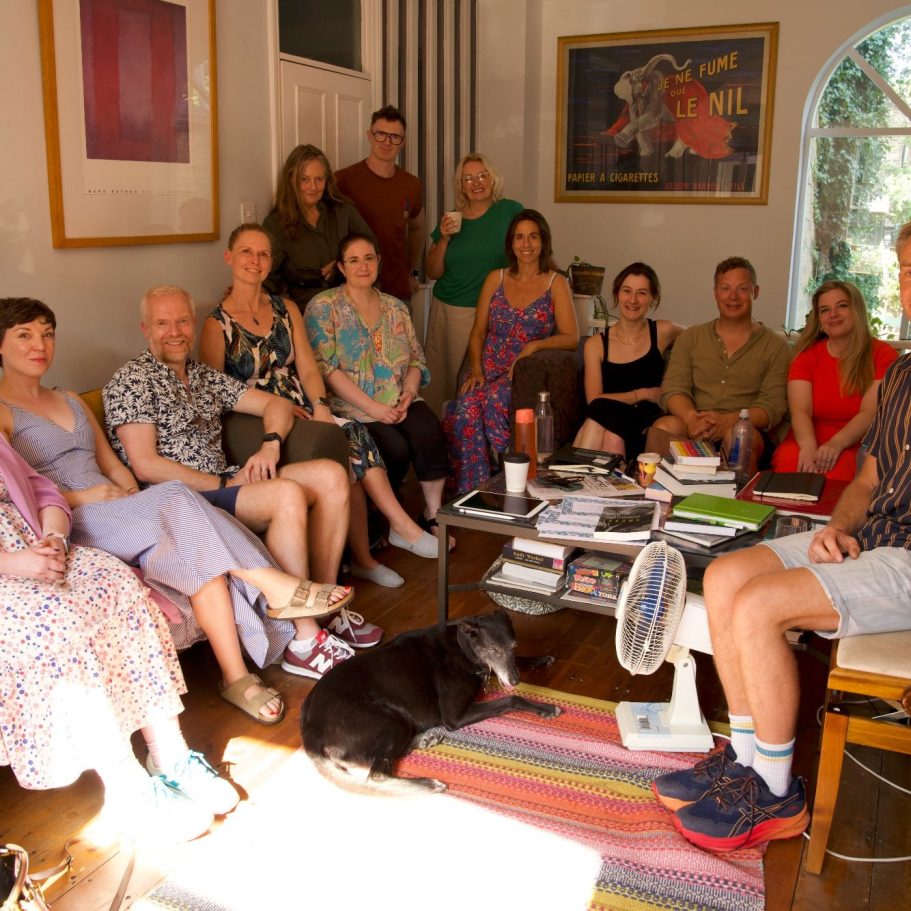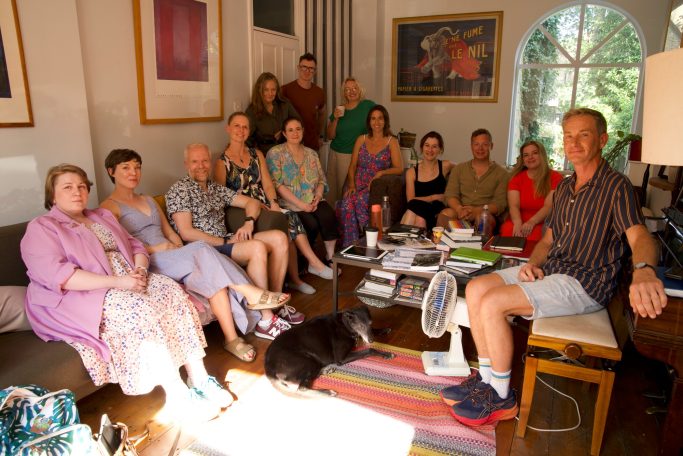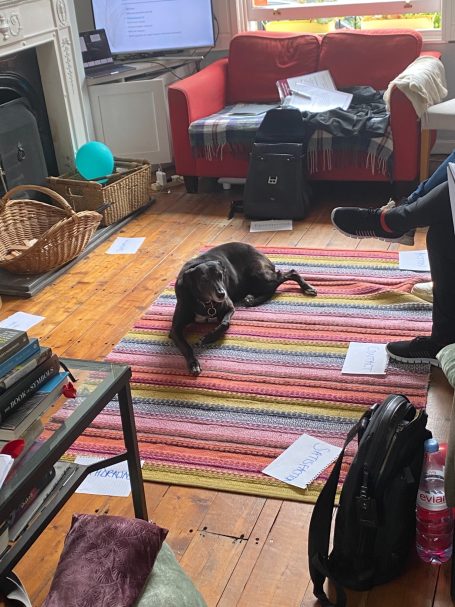2025 training

2025 training programme
2024-25 training workshops are below. Some are over a weekend and others are longer courses. Subjects include:
- Relationship, couples and sex and sexuality training (six days total)
- The Official Introduction to Transactional Analysis (TA101)
- Single and Ready to Mingle: Project, Idealise and Demonise, dating and relating optimally.
- Emerging from Emergency: Trauma and critical incident training
- Working with Neurodiversity
- Food and psychotherapy
More information about each of these courses is below. If you would like to know more about any of these courses, please email Jonathan.

Please email to register your interest: jonathanchristopherlake@yahoo.com
This is a certificated course. This course is the equivalent of 42 hours of CPD and 20 hours of Mental Health Familiarisation Placement (MHFP). Advance Certificated course includes 52 hours of CPD and 6 hours of MHFP.
Relationship, couples and sex and sexuality training
Run over three weekends, we will look at different types of loving and relating to understand better how we can function and flourish with a partner or partners in life.
Comparison of different formats of relationship will also help us understand more heteronormative functioning and how people negotiate to live authentic and fulfilling lives, enhanced through relationship.
Cost:
- £550+VAT for all three weekends
Venue:
- 42 Driffield Road E3 5NF (or a larger East London venue if numbers require).
Dates:
- 14/15 June, 26/27 July, 9/10 August 2025
- 10am-5pm daily apart from the last Sunday (12th Jan) which is 9.30am-12.30pm
What is covered on the course Relationship, couples and sex and sexuality training?
We will think about different ways of expressing sexuality, identity and our uniqueness, facilitated by partnerships. We’ll differentiate between script-induced relating compared to an individuation and expansive process. This will include looking at healthy and unhealthy symbioses as well as Jung’s idea that the more we can learn and experience through difference in our loving, the more we individually grow and move towards autonomy.
- The first weekend will focus on theory, format, clinical framework and examples of working with people in relationship. As well as couples this covers individual work, polyamorous relationships, kink-aware relationships and other vehicles for loving and partnering, taking an intersectional viewpoint and learning from different communities including different gender identities. Theoretical schools looked at will include Transactional Analysis, Gestalt, Jungian, specific ‘couples’ models and Integrative theories.
- The second weekend will focus on practice. Participants will work in small groups which involve observation and working with different constellations and theories. Usually actors are used for roleplaying clients and students can experiment with different modes of working in a safe and supportive environment.
- The third weekend focuses more on working with sex, psychosexual issues and one's sexuality, as well as an individual's sexual relationship with themselves.
“I just want to say that I believe the relationship training you are offering is something I’ve been missing in my training! For me, it’s the gold dust in individual work… because most of the time individuals come to me because they are struggling with their relationships/intimacy on the whole.”
Angela, Metanoia Institute 5th year student
Single and Ready to Mingle: Project, Idealise and Demonise?
Dating and relating in a modern world.

This weekend will look at the search for the magical other and our quest for the mythical mate to heal (or reinforce) our past traumas.
We will explore how we and our clients can take greater responsibility in personal relationships, how we accept a summons to individual growth rather than seeking rescuing from others, and is a potential partner's role to collude and soothe us - or challenge and disturb us?
Dates:
- 5/6 July 2025
Cost:
- £195+VAT for two-day workshop.
Venue:
- 42 Driffield Road E3 5NF (or a larger East London venue if numbers require).
Please email to register your interest: jonathanchristopherlake@yahoo.com
Certificated course includes 14 hours of CPD
What is covered on the course Single and Ready to Mingle?
We will also explore how our intersectionality impacts this (including what dating/projecting looks like in a tech-driven world). We will ask what is the clients' and our own philosophy on the point of relationships and how this impacts our quest for relating.
We will look at different personality adaptations and character styles and the different life stages we go through with or without the other.
Topics covered include:
- Theoretical concepts will include different Transactional Analysis schools, Jungian Psychology, Adlerian thinking and Object Relations.
- Personal experiential and group process will bring the content from the conceptual to the personal and will encourage ourselves and our own clients wider thinking about dating, relating and expanding from ego-driven needs in 'first adulthood' into soulful, meaningful relationships and existence.
- Clients who struggler and yearn for the 'other' and what personal or 'soul' deficits they might project in their quest of the mythical mate.

Please email to register your interest: jonathanchristopherlake@yahoo.com
Certificated course including 14 hours of CPD and one hour of MHFP
Emerging from Emergency: Trauma and critical incident training
This two day trauma informed psychotherapy training will provide practising therapists with a detailed understanding of how to work effectively with the various types of trauma we see in the therapy room and onsite at critical incidents.
We will learn experientially as well as didactically, using the group as a community to gain knowledge and understanding from our experiences with clients, training and our own trauma stories. Theoretical lenses on the subject will include Gestalt, Transactional Analysis, Person-Centred, Adlerian, CBT and Jungian perspectives.
You will learn a range of practical CBT-based and other techniques and approaches which will enable you to work effectively with clients who have experienced trauma. The range of traumatic experiences, from single-incident and multiple trauma to severe and prolonged, developmental, external event-based and everyday trauma and will include protocols for working with PTSD and complex PTSD including assessment and diagnosis.
Everyday trauma includes looking at trauma through an intersectional lens and explores power, discrimination, grief, heartbreak and oppression.
The course is based on the New Haven competencies of trauma and will be taught using a range of neuroscience and evidence-based teaching and learning methods.
These competencies were developed by a group of international experts on trauma as a means of identifying best practice and have subsequently been adopted by the American Psychological Association.
Dates:
- Dates 27/28th September 2025
Cost:
- £250+VAT for weekend onsite critical incident training course (accepted with Employee Assistance Programs for working onsite) - 10/11 May 2025
Venue:
- Online or London based. Please enquire for face-to-face training registration
What is covered on the course Emerging from Emergency: Trauma and critical incident training?
Topics covered include:
- Understanding trauma and its impact, best trauma-informed practice and therapeutic assessment
- Evidence-based models of trauma therapy
- Techniques and Interventions for trauma
- Understanding and working with Complex Trauma
- Case studies of different client character styles, organisations and industries with practical application.
- Guidelines on working onsite on different types of critical incidents, the logistics of such work and how to setup as a critical incident responder
- Assessment and diagnosis of trauma and definitions of the spectrum of trauma
- The impact of trauma on the brain, memory, and the body.
- The therapeutic relationship and trauma
- Secondary and vicarious trauma and therapist self-care
- Models of trauma processing
- Contraindicated therapies/ techniques
- Therapeutic approaches and techniques for trauma
- Trauma-sensitive mindfulness and mental imagery interventions
- Body-focused trauma therapy interventions
- A TA/Integrative trauma therapy protocol
- Personalising and individualising therapy
“Many thanks for sharing not just your wisdom and expertise but also your beautiful home over the last few months. It has been a wonderful experience.”
Hannah Jackson-McCamley, 3rd year psychotherapy student, Metanoia Institute
Learn more
Watch this video to learn more about the approach and content of my trauma informed training courses.

Please email to register your interest: jonathanchristopherlake@yahoo.com
An Internationally recognised (European Association for Transactional Analysis) TA101 Certificate. This is also a prerequisite for any further formal training in Transactional Analysis. Certificated course allows access to further study including the TA Psychotherapy M.Sc.
The Official Introduction to Transactional Analysis (TA101)
Dates:
- 16/17August 2025
Cost:
- £240+VAT for the weekend, 10am-5pm
Venue:
- 42 Driffield Road E3 5NF (or a larger East London venue if numbers require).
Pre course requirements:
- None, no therapy training needed. Open to the public. No assessment.
What is the TA101 Course?
This two-day internationally recognised transactional analysis training course is packed full of useful ideas that can be applied in a wide range of personal and professional settings.
Transactional analysis (TA) is used widely throughout the world in organisations, education, counselling, psychotherapy, parenting, coaching and many other areas. It is well known for being accessible and practical in its application in our everyday lives whilst having theoretical depth for those who wish to continue in the study.
You will be invited to reflect upon yourself and others, to integrate the learning, and to bring real examples from your own life and identify alternative options for behaviour and communication that will serve you better.
Topics covered include:
- Introduction to Transactional Analysis:
The teaching in the introduction to transactional analysis training course is interactive, lively and stimulating and groups are kept small (usually max 14) to enhance your learning. We will use a combination of teaching, discussion, practical exercise and time for reflection.Life script and how we make decisions early in our life that become unconscious and affect us now both professionally and personally - Psychological Games and how we and others unconsciously set up repetitive patterns to keep our world predictable and familiar
- Ego States and the different aspects of ourselves and others and how we can operate from each of these
- Transactions and the ways with which we communicate with others
- Rackets and how we and others can create our own reality and stay wedded to that and much more.

Please email to register your interest: jonathanchristopherlake@yahoo.com
Certificated course including 14 hours of CPD and two hours of MHFP
Food and psychotherapy
A weekend looking at our relationships with food.
Jonathan trained at Le Cordon Bleu Paris for the 'grand diplôme', cookery school in the late 2000s and spent ten years reviewing restaurants and running a canapé business whilst working as a psychotherapist. He is in training at Wine and Spirits Education Trust (WSET) and is working up to Sommelier training.
He is interested in poor eating and unaware habits therapists can have and is passionate about supporting clients through their complex relationship with food and vitality.
Dates:
- Date: please email to register interest
Cost:
- £225+VAT for the weekend
Venue:
- 42 Driffield Road E3 5NF (or a larger East London venue if numbers require).
What is covered on the course Food and Psychotherapy?
Core concepts include:
- Jung's idea of different bodily needs.
Berne's different types of hunger. - Developing through autonomy, individuation and self-actualisation with food as the fuel.
- Transgenerational trauma and legacies around food and eating.
- Psychological as well as physical scarcity and abundance in our individual stories and how this may impact our hungers.
Topics covered include:
- working psychodynamically with eating disorders
- resources to support those around eating disorders
- exploring meaning of food; as nourishment, symbol of love, nurturance and enjoyment
- food as addiction, an addiction like no other where you have to imbibe at least three times a day to be healthy
- how we were fed from birth and how our complex intersectionality can impact our perception of food
- when does eating become a disorder clinically and how is this treated by different modalities
- how our appetite for life and living with intensity may influence our relationship with eating
- our larger relationship with health, vibrancy and pleasure
- ego versus soulful eating
“Thank you for your brilliant, witty and insightful teaching. You are a true educator.”
River, third year psychotherapy student Connexus Institute
"Jonathan provides insightful courses for those hungry to learn more. The unique topics offered complemented my practice and broadened my interests within the field. A highly valuable resource."
George Teare, 5th year TA student

Working with Neurodiversity
A weekend training to help understand, support and work with neurodiversity
- Date: tbc, please email to register interest
- Venue: 42 Driffield Road, E3 5NF
- Cost: £250 for the weekend
- Certificated course including 14 hours of CPD and four hour of MHFP
With more and more people being diagnosed or self-diagnosing with differences/disorders in adulthood than ever before, how does it impact our work as therapists? How do we consider a client possibly having these diagnoses if we do not know what to look out for, and what could be the impact if we miss this or misdiagnose?
Maybe it’s daunting to think about working with these clients. Where does one begin to understand all the different opinions on this subject?
What is covered on the course Working with Neurodiversity?
This course is taught by Jonathan Lake and Crena Watson.
Crena Watson is dyslexic and has ADHD; she runs a full private practice for autistic and ADHD individuals.
Topics covered include:
- What are our perceived ideas and assumptions and prejudices? It can be scary to ask questions in case one says the wrong thing.
- What is the difference when working with an autistic or non-autistic client? How do we work with them optimally?
- What happens when we have a client diagnosed with ADHD, but they also have undiagnosed Autism and vice versa, as around 70% have both?
- We aim to share our involvements in working with such clients, bringing it alive with case studies, and our own learnings and mistakes.
- We will discuss what Autism and ADHD actually is, helping dispel many incorrect stigmatising misconceptions.
- We will examine the challenges these neurodivergent individuals have in a society which is mostly neurotypical.
- The so called level one/ high functioning autistic person who appears to be coping in society, are one of the biggest cohort of people to die by suicide.
- We will look at the many co-morbidities that can accompany these diagnoses.
- May be you are neurodivergent yourself and if so we welcome your input.
- We will provide a reading list of books and Journals, many written by autistic academics.
- Research findings in this area will be key to our conversations
Gallery
Trainings take place in my home in East London, one stop from Liverpool Street. Teaching from home offers a relaxed and convivial learning atmosphere for students, providing an intimate group training as well as rooms for breakout discussions and exercises.
“Many thanks for sharing not just your wisdom and expertise but also your beautiful home over the last few months. It has been a wonderful experience.”
Hannah, 3rd year psychotherapy student on couples and relationship training
©Copyright. All rights reserved.
We need your consent to load the translations
We use a third-party service to translate the website content that may collect data about your activity. Please review the details in the privacy policy and accept the service to view the translations.








